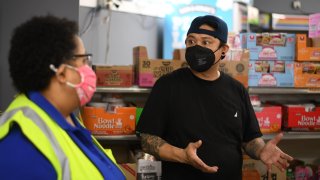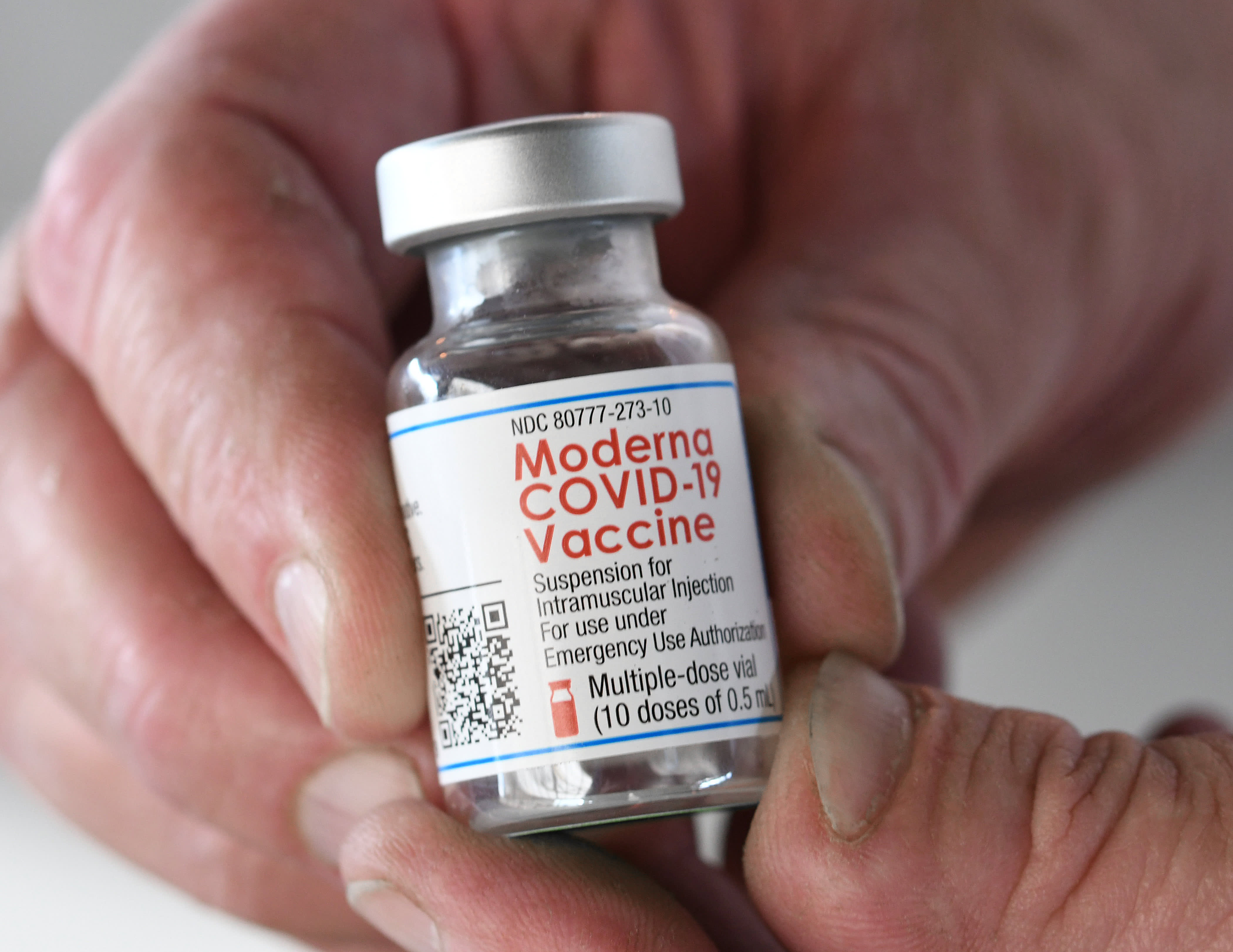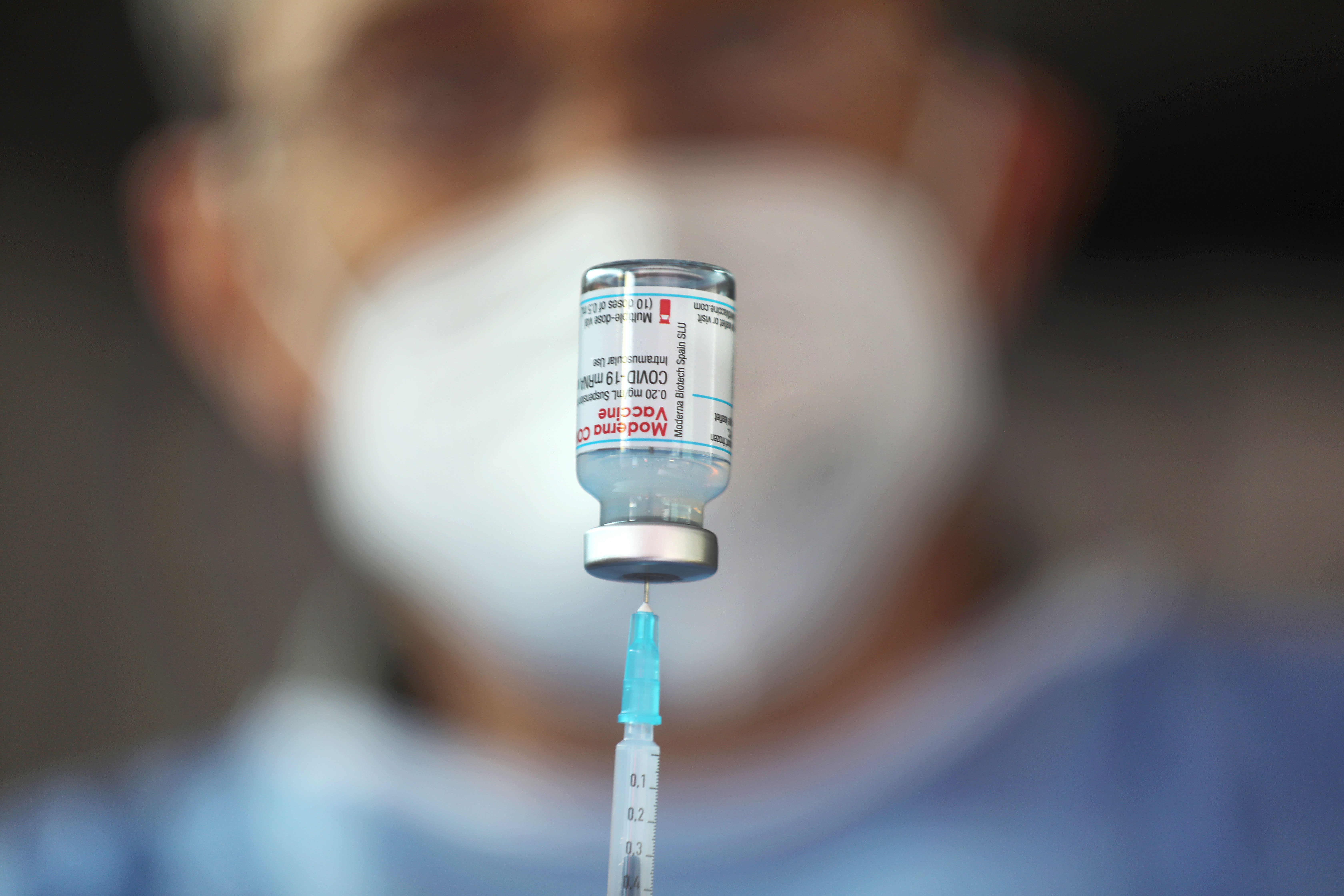
Amid new guidance from the Centers for Disease Control and Prevention, many fully vaccinated people in the United States have been eager to hang up their masks, while others are still a little hesitant to give up the protective face coverings.
The guidance, which was released in May and said that fully vaccinated people did not need to wear masks or socially distance in indoor settings, has been adopted in most areas, though businesses are allowed to require customers wear masks or follow other safety procedures. Some have expressed concern about not knowing the vaccination status of strangers, making them hesitant to go maskless.
TODAY spoke to seven infectious disease experts to get their thoughts on wearing masks indoors, particularly in settings like grocery stores and restaurants, and what factors are influencing their decisions right now.
Feeling out of the loop? We'll catch you up on the Chicago news you need to know. Sign up for the weekly Chicago Catch-Up newsletter here.
1. Dr. Anne Liu, infectious disease physician at Stanford Health Care
Liu said that she and her family are still "limiting our indoor contacts," especially in situations where people might not be wearing masks.
"Because our family is not fully vaccinated, we're still taking this precaution," Liu explained. "Because our kids still have to wear masks, we want to ... show them that we're kind of in this together."
Liu said that at outdoor events or indoor spaces where everyone is vaccinated, she feels comfortable relaxing a bit, but in public spaces where it's impossible to know who's vaccinated, she and her children will "wear that mask."
2. Dr. Chris Beyrer, professor of epidemiology at the Johns Hopkins Bloomberg School of Public Health
Beyrer said that so long as he is seated with people who are all fully vaccinated he is "very comfortable" eating at a restaurant, indoors or outdoors. He is planning a vacation with a few vaccinated friends in June and said that he anticipates indoor dining to be part of their plans.
"We will be going out to dinner after hiking, I think both inside and outside, and will follow the guidelines of those restaurants," he said. "Everyone I'm traveling with is fully immunized, so we're a party of fully immunized people, and I think the waitstaff will likely be masked."
Despite this, Beyrer said he's not "ready" to be "in a crowded indoor place with folks whose immunization status" he doesn't know.
"Socializing without a mask, I think that's too risky, given the fact that there are these variants of concern out there," Beyrer said.
3. Dr. Edgar Sanchez, infectious disease physician at Orlando Health
Sanchez said that despite the new guidance from the CDC and the low risk he has of contracting or spreading COVID-19, he is still "more comfortable wearing a mask" especially in a crowded space or situation where he can't put distance between himself and another person.
"If I'm in a position where I know everybody around me is vaccinated, for example, like amongst family, I feel much more comfortable pulling that mask off, but if I'm in a room full of strangers, many of which probably aren't vaccinated, then I still would be a little bit worried about taking off that mask," Sanchez said.
4. Dr. Yvonne Maldonado, professor of pediatrics (infectious diseases) and health research and policy at Stanford Health Care
Maldonado said that she has been comfortable eating indoors on a few occasions, though she has "been careful to be near" an open window or door for increased ventilation, and to eat at restaurants where the tables are still distanced. While she is comfortable not wearing a mask in a situation where everyone is vaccinated, large group settings still pose some concerns.
"I might still consider wearing a mask (in indoor group settings) for at least the time being," said Maldonado. "I think over the summer I'll get a chance to really get a sense of what I should be doing, but I suspect I'll always keep a mask with me, just in case, because I have to do it anyway for work."
Maldonado said that if she were going to a large event, she would want to sit in a vaccinated section if one were offered, especially as experts wait to see if variants or other concerns lead to a rise in cases.
"We don't know who's not vaccinated and who's just going to say 'Oh yeah, I'm not going to wear my mask,'" she said.
5. Dr. Aneesh Mehta, associate professor in the division of infectious diseases at Emory University School of Medicine and chief of infectious disease services at Emory University Hospital
Mehta said that the CDC guidance is "reflective" of the fact that vaccinations protect both the person who is immunized and the community that they live in.
"I feel very comfortable indoors and outdoors without a mask on," Mehta said, though he noted that if he were in a "very crowded area" with people who are unvaccinated, he might still wear his mask, especially since he has children who are not yet fully vaccinated.
6. Dr. Robert Hecht, professor of clinical epidemiology at Yale University
Hecht said that while his "rational brain" says that he "probably doesn't need to wear a mask" in indoor or crowded situations, he likely still will for his own comfort.
"It's partly to feel a little bit safer for myself; I don't think I'm running much risk by going to those places," he explained, though he noted that he is still wary of contracting the virus and spreading it to others, especially people who are immunocompromised and may not get as strong an immune response from the vaccine. "... I wouldn't want to expose them."
More on COVID-19 Vaccines
Hecht also said that wearing a mask is a "small sacrifice," especially in an indoor or crowded setting.
"I figure I should probably keep doing that; it doesn't cost me much and it might help somebody else out," Hecht said. "I'm thinking more of the other person than I am necessarily about taking care of myself."
7. Dr. May Chu, clinical epidemiology professor at the Colorado School of Public Health
Chu said that for now, she will keep wearing her mask in some situations because she has high-risk family members and because there's no way to confirm a stranger's vaccination status.
"I don't know if others are following precautions and I don't know their vaccine status," Chu said.
She also noted that she might wear masks in the future, especially during the winter, to avoid other respiratory viruses.
"By the winter time, as we get more indoors, the risk of having flu and other viruses will increase, and you know, I didn't get sick all winter (this year) and that was great," Chu explained. "Part of which I contribute to the fact that we were practicing distancing, hand-washing, masking and so forth. If I don't have to get sick, it would be nice to not do that."
Related:
This story first appeared on TODAY.com. More from TODAY:



